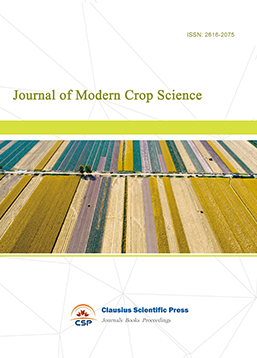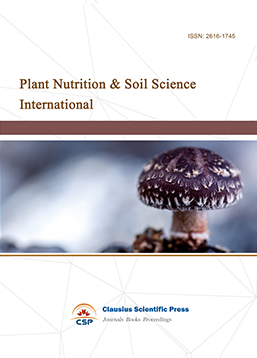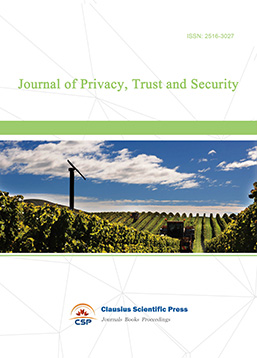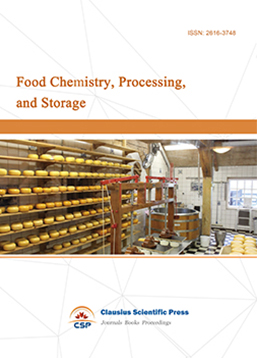Analysis of the Molecular Biology Mechanism of Resistance Training on Muscle Strength Growth under Sports Nutrition Intervention
DOI: 10.23977/afshn.2025.070105 | Downloads: 28 | Views: 978
Author(s)
Hongyu Zhang 1
Affiliation(s)
1 Gdansk University of Physical Education and Sport, Gdansk 80-337, Poland
Corresponding Author
Hongyu ZhangABSTRACT
With the increasing global aging trend, sarcopenia has become one of the important health issues affecting the elderly population. The loss of muscle strength not only significantly reduces quality of life, but also increases the risk of falls, fractures, and long-term care dependency. Therefore, effective ways to promote muscle strength growth have become the focus of current sports science and clinical medicine research. Resistance training, as a widely used exercise method to enhance muscle strength, plays an important role in improving muscle health and slowing down age-related muscle loss. This paper discusses the molecular biological mechanism of muscle strength increase in resistance training under exercise nutrition intervention. Resistance training has long been recognized as an effective strategy to increase muscle strength and mass, but the role of sports nutrition in optimizing these outcomes is increasingly important. By examining key molecular pathways such as mTOR, AKT, and NF-κB, this study highlights how various nutritional interventions such as protein, leucine, ω-3 fatty acids, and carbohydrates can synergistically enhance the effects of resistance training.
KEYWORDS
Molecular Biology Mechanism; Resistance Training; Muscle Strength Growth; Sports Nutrition InterventionCITE THIS PAPER
Hongyu Zhang, Analysis of the Molecular Biology Mechanism of Resistance Training on Muscle Strength Growth under Sports Nutrition Intervention. Advances in Food Science and Human Nutrition (2025) Vol.7: 30-38. DOI: http://dx.doi.org/10.23977/afshn.2025.070105.
REFERENCES
[1] Devries, M. C., McGlory, C., Bolster, D. R., Kamil, A., Rahn, M., Harkness, L., ... & Phillips, S. M. (2018). Leucine, not total protein, content of a supplement is the primary determinant of muscle protein anabolic responses in healthy older women. The Journal of nutrition, 148(7), 1088-1095.
[2] Moore, D. R., Churchward-Venne, T. A., Witard, O., Breen, L., Burd, N. A., Tipton, K. D., & Phillips, S. M. (2015). Protein ingestion to stimulate myofibrillar protein synthesis requires greater relative protein intakes in healthy older versus younger men. Journals of Gerontology Series A: Biomedical Sciences and Medical Sciences, 70(1), 57-62.
[3] Wilson, J. M., Fitschen, P. J., Campbell, B., Wilson, G. J., Zanchi, N., Taylor, L., ... & Antonio, J. (2013). International society of sports nutrition position stand: beta-hydroxy-beta-methylbutyrate (HMB). Journal of the International Society of Sports Nutrition, 10(1), 6.
[4] Tinsley, G. M., Gann, J. J., Huber, S. R., Andre, T. L., La Bounty, P. M., Bowden, R. G., ... & Grandjean, P. W. (2017). Effects of fish oil supplementation on postresistance exercise muscle soreness. Journal of dietary supplements, 14(1), 89-100.
[5] Pennings, B., Groen, B., de Lange, A., Gijsen, A. P., Zorenc, A. H., Senden, J. M., & Van Loon, L. J. (2012). Amino acid absorption and subsequent muscle protein accretion following graded intakes of whey protein in elderly men. American Journal of Physiology-Endocrinology and Metabolism, 302(8), E992-E999.
[6] Cooper, R., Naclerio, F., Allgrove, J., & Jimenez, A. (2012). Creatine supplementation with specific view to exercise/sports performance: an update. Journal of the International Society of Sports Nutrition, 9(1), 33.
[7] Tipton, K. D., Hamilton, D. L., & Gallagher, I. J. (2018). Assessing the role of muscle protein breakdown in response to nutrition and exercise in humans. Sports Medicine, 48, 53-64.
[8] Norton, L. E., & Layman, D. K. (2006). Leucine regulates translation initiation of protein synthesis in skeletal muscle after exercise. The Journal of nutrition, 136(2), 533S-537S.
[9] Schoenfeld, B. J., Ogborn, D., & Krieger, J. W. (2017). Dose-response relationship between weekly resistance training volume and increases in muscle mass: A systematic review and meta-analysis. Journal of sports sciences, 35(11), 1073-1082.
[10] Calder, P. C. (2015). Marine omega-3 fatty acids and inflammatory processes: Effects, mechanisms and clinical relevance. Biochimica et Biophysica Acta (BBA)-Molecular and Cell Biology of Lipids, 1851(4), 469-484.
[11] Snijders, T., Nederveen, J. P., McKay, B. R., Joanisse, S., Verdijk, L. B., Van Loon, L. J., & Parise, G. (2015). Satellite cells in human skeletal muscle plasticity. Frontiers in physiology, 6, 283.
| Downloads: | 2692 |
|---|---|
| Visits: | 96809 |

 Download as PDF
Download as PDF



